If you're planning on developing apps using Python, you’ll need the best Django hosting providers to do so. According to Stack Overflow's 2023 Developer survey, Python is the third most popular coding language to learn. It has numerous uses, such as aiding machine learning, software and web application, and data science.
Here are our top five Django hosting picks:
- A2 Hosting – Best for Quick Speeds
- PythonAnywhere – Best for Specialized Python Environment
- Liquid Web – Best for Premium Support and Features
- GreenGeeks – Best for Web Hosting Powered by Renewable Energy
- ScalaHosting – Best Alternative to cPanel
It's safe to say that learning Python will remain a lucrative skillset for decades to come—it’s the answer for those who want their business to run on all operating systems.
Feeling overwhelmed and don't know where to start? Fret not; this article will cover everything you need to know about Django and lists the best Django hosting providers of 2023.
Top 5 Best Django Hosting Providers
1. A2 Hosting
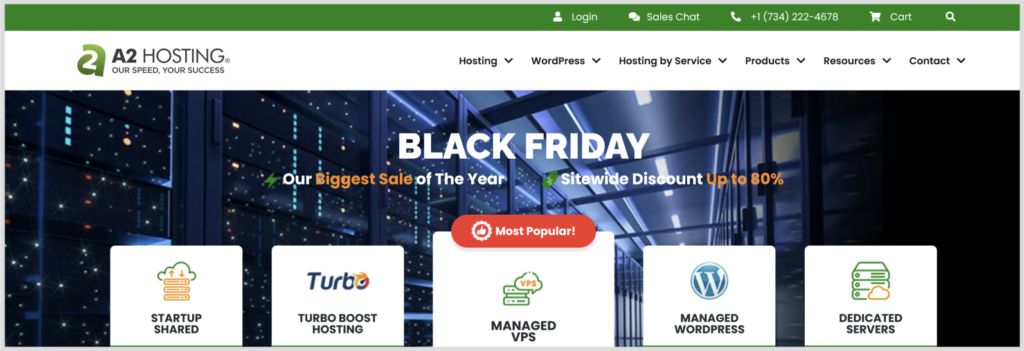
A2 Hosting is a solid choice for small to medium sized businesses, freelancers, and web developers that want a robust, fast, and developer-friendly space without the stress.
It has eight flexible options, including shared, VPS, and dedicated hosting, so there's the choice to scale as and when needed. The setup is quick; just run the pip (package installer for Python) to create your virtual environment.
From there, you can organize Django and configure the interface with ease. There's even a choice to get up to 20 times accelerated website speeds.
If you want instant page loads, a powerful CPU, and a large SSD, A2 Hosting delivers excellent value for money.
Features
All managed VPS plans include:
- 99.9% hosting uptime
- 24/7 support
- Free site migration
- DDoS protection
- In-depth security monitoring and protection
| Pros | Cons |
| Four server locations | No Windows Hosting |
| Excellent server performance speed. Turbo Servers are available as well | Renewal fees are expensive |
| Free cPanel control panel on all of the managed VPS plans | |
| 30-day money-back guarantee | |
| A choice of Python versions to use or the ability to upload your own |
A2 Hosting Pricing
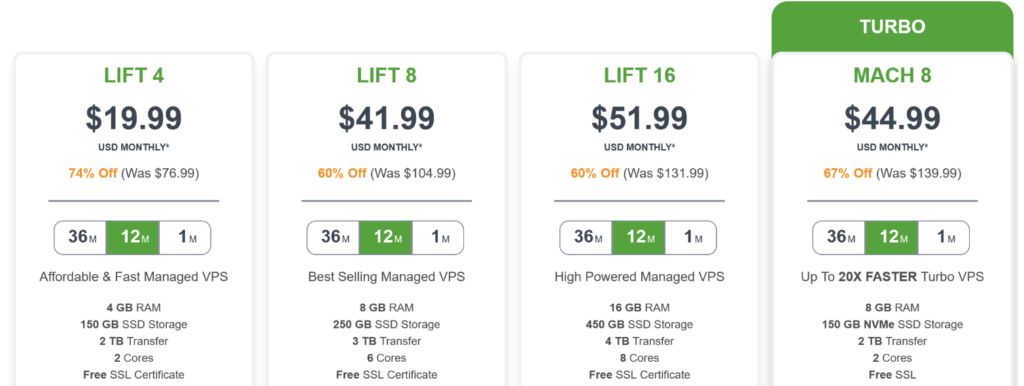
A2 Hosting features six managed VPS Hosting tiers that offer monthly, yearly, or three-year subscriptions.
Lift 4 is the cheapest option, including free SSL, an Inode limit of 2,016,000, and two cores for $19.99 a month for a year. Each plan sequentially gives more RAM, CPU, and storage as the price increases.
Lift 16 is bountiful as it provides a lot of power with eight cores, 16GB of RAM, and 450 GB of SSD storage for $51.99 a month per year.
However, the TURBO plans differ as they focus on speed with features such as LiteSpeed servers and multiple LiteSpeed cache plugins.
For the experts who prefer to manage everything physically, A2 Hosting offers a cost-effective unmanaged VPS hosting from $4.99 a month per year.
2. PythonAnywhere

PythonAnywhere is a cloud-based platform as a service (PaaS) that hosts through Amazon Web Services (AWS). It offers a straightforward setup without the hassle of maintaining or installing software on your server.
The tool offers a supportive learning environment for beginners, Python enthusiasts, and professional developers of all ages. PythonAnywhere also encourages teachers to teach Python—they can try the platform out, get bulk student accounts, and monitor multiple user accounts as well.
PythonAnywhere is cross-platform, so most operating systems are compatible, which is excellent for when inspiration hits.
Features
All managed VPS plans include:
- Access to Secure Shell (SSH)
- Python, Bash, MySQL consoles
- Access to at least two interactive consoles
- The ability to run at least one task (increases on paid plans)
| Pros | Cons |
| Django specific features | Lacks WebSocket support |
| Easy to use | Can struggle with CPU-intensive tasks |
| Detailed, clear documentation | |
| Generous plans that warn you if you continually exceed limits | |
| Collaboration and teaching functionalities like file-sharing options and screen monitoring |
PythonAnywhere Pricing
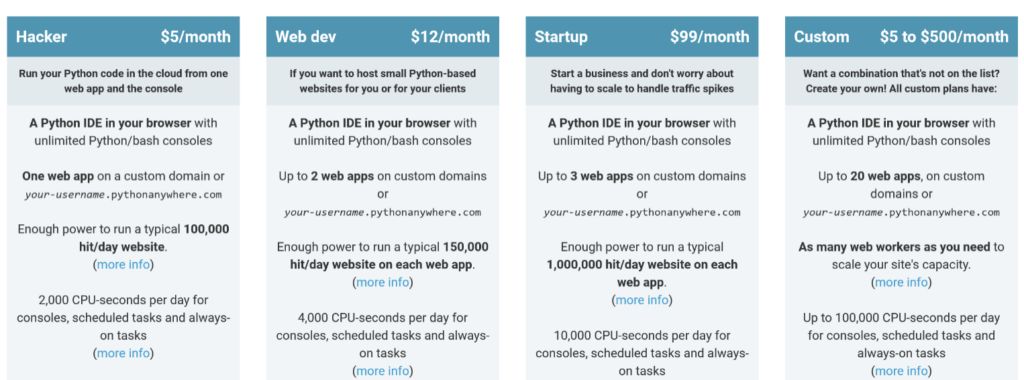
PythonAnywhere provides the best value for money on this list with a freemium account and low starting prices. Each pricing tier is monthly or yearly and has individual limits, such as how many Python web apps you can create, CPU allowance, and private storage.
The Hacker tier is for those that want to create one app, 1GB of private storage, and have access for two workers at $5 per month. However, for those with a bigger budget, you get better value with the Startup plan with high bandwidth, access for 25 team members, and 50 GB of private storage for $99 per month.
Lastly, the Custom plan can be made with up to 20 apps. Contact the sales team for details on the price.
3. Liquid Web

Liquid Web provides excellent overall service and tech support. Professional tech assistance is on-hand via phone, ticket, email, and live chat with a response time of 59 seconds, so you're never left waiting at crucial moments.
They have a wide range of hosting solutions for mid-large companies focusing on power and premium features. All managed VPS plans come with a generous monthly bandwidth and Cloudflare content delivery network (CDN)—this works by caching your website content, so everything runs smoother.
Django is easy to install, and there's even a complete tutorial with Python functions so you can get going.
Features
Managed VPS plans include:
- 100% network uptime SLA
- Unlimited sites
- Root access
- 100% power uptime SLA
- Integrated firewall
| Pros | Cons |
| 10 TB Bandwidth on all VPS plans | cPanel and InterWorx are only available if you opt for the annual or biannual pricing |
| 24/7 sales and support team | No money-back guarantee, and pricey renewals |
| Downgrading and upgrading your plan is fuss-free | |
| Security suite with real-time monitoring and protection from DDoS attacks | |
| Add-ons and site migrations are available |
Liquid Web Pricing
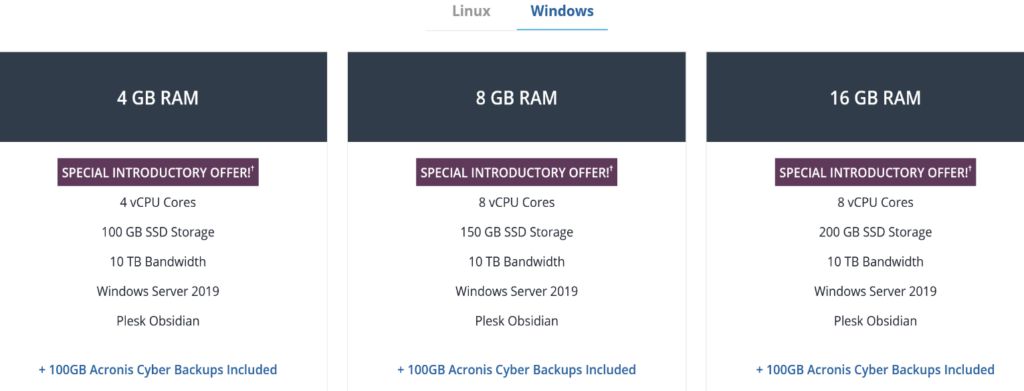
Liquid Web's managed pricing tiers come in monthly, yearly, and biannually packages. There's also the choice of Linux and Windows, which totals 14 plans. Each plan comes with more elements, such as increased storage and CPU.
With Linux, the 8GB RAM tier is an excellent buy with eight vCPU cores, Acronis Cyber Backups, and 150 GB SSD storage for $85 a month every 12 months.
For Windows, the 8GB RAM plan is a solid choice; it offers Plesk Obsidian, 150 GB SSD storage, and Windows Server 2019 for $110 a month per year.
With promotional Black Friday discounts available, it makes sense to chat with their advisors for more details before committing.
4. GreenGeeks

GreenGeeks delivers web hosting that is 300% renewable—data centers contribute similar amounts of carbon pollution as the airline industry, so the alternative here is more than welcome.
The platform provides four types of hosting: Web hosting, WordPress hosting, Reseller hosting, and VPS hosting. The VPS plans are fully managed and come with the latest version of Python, with similar hosting features as other providers but at a lower price—you get RAID-10 SSD storage, a cPanel dashboard, and 10 TB transfer.
GreenGeeks also backs up customers' files every night, and will even restore a site for free once a month.
Features
Key features include the following:
- Three data centers locations
- 24/7 email and live chat support
- Advanced security and monitoring
- Free website transfer
- Free CDN
| Pros | Cons |
| One tree is planted with every account | Phone support is only available Monday to Sunday in the EST timezone |
| Free cPanel migration if you’re with another provider and want to change | Setup fee of $15 if you pick month-to-month billing |
| 99.9% service uptime | |
| Free Softaculous, which allows the installation of third-party tools directly into your cPanel | |
| A simple pricing plan and 30-day money-back guarantee |
GreenGeek’s Pricing

GreenGeek offers three tiers which come in monthly or yearly installments. As with most providers, the annual plan does work out cheaper overall.
Each package features more RAM and SSD disk space. However, the CPU only increases on the highest choice, the 8GB plan. The 4GB plan is respectable as you get 4 GB of RAM, four vCPU, and 75 GB’s worth of SSD disk space—plenty to create your projects at $59.95 a month per year.
The team is happy to answer any questions on live chat about the plans.
5. ScalaHosting

ScalaHosting is a cloud-based solution that's partnered with Digital Ocean and Amazon AWS. It excels at providing innovative services for the customer.
The service uses SPanels—instead of cPanels—in its managed VPS plans. Most hosting plans in the industry revolve around cPanels, but they tend to hog resources on the server and dictate pricing structures, which is why some features end up restricted.
SPanels are an all-in-one comprehensive cloud management platform where you can instantly oversee your server from a slick interface and receive valuable resources. ScalaHosting does, of course, support Django so that you can experiment and develop as you see fit.
Features
All managed cloud VPS plans include:
- Price lock guarantee
- Blacklist monitoring and removal
- Real-time malware protection
- MySQL, PHP, Perl, Python, and Node.js
- Unmetered bandwidth
| Pros | Cons |
| Host unlimited accounts and sites on the server at no extra cost | Load handling capacity needs improving |
| All websites on the server get a free SSL certificate | It takes some adjustment to get familiar with SPanel, but the support team is highly attentive in live chat |
| SPanel is lightweight software that can run with less than 1GB of RAM | |
| Cloud servers are customizable to your needs | |
| Ecommerce features |
ScalaHosting’s Pricing

ScalaHosting offers three models: monthly, yearly, and three-yearly on managed VPS. The three-year model works out better in the long run, and again, this comes down to personal preference.
The first option, Build 1, is a decent starting place with a generous amount of RAM, 4GB, 50GB of NVMe SSD, and unmetered broadband. The leap up in the CPU and RAM for each plan is double until you reach Build 4.
You can also build a custom cloud VPN using sliders to change the amounts. For example, you can select 2 CPU Cores but then increase the specs without the price jumping up.
What is Django Hosting?
Django is an open framework that allows developers to make powerful websites and apps using the coding language Python. It relies on a web server to function, hence the term Django Hosting.
In a nutshell: Django is a customizable tool that enables a fast build with shortcuts, pre-built elements, and standard functions. Users can use approved existing code templates to reduce time and risk. For example, problematic areas, such as creating login screens, are sorted as they're already premade.
Initially, Django was created in 2003 by Adrian Holovaty and Simon Willison while they were busy programming newspaper websites. Django is now known as a playground where developers and creatives can make secure, personalized apps and sites with options to scale.
If you are searching for any free Django hosting i will recommend you check our article here: 10 Best Free VPS Hosting Providers (Trial & Forever)
Which Projects are Best Suited for Django?
There are lots of website builders and good CMS services like WordPress to choose from overall. All of these come with plugins, themes, and add-ons that require little or no coding experience. For those that want a generic portfolio site or blog, Django isn’t going to be the best option.
But for those wanting a challenge and want to design their own eCommerce site, startup, social media platform, or multifunctional platform, your best bet is Django.
Notable examples include NASA, Mozilla Firefox, Instagram, Reddit, and Spotify's app.
Django: Pros and Cons
Here's a list of the pros and cons of using Django for your projects:
Pros
- Open source: It's free and accessible to anyone to build web applications.
- Security: You’ll get continuous updates in different versions, built-in authentication, and features that protect against common attacks. It gives novices and coders in a rush that extra peace of mind.
- Massive community support: It's easy to reach out, learn, and solve problems with like-minded individuals. There's a high chance that your query has already been asked and resolved.
- Extensive libraries and built-in features: There are libraries to fit any function or industry, allowing you to create multiple products, components for big pre-existing apps, and build your personalized content management system (CMS).
- Popular framework: Django uses the REST framework that creates a robust application programming interface (API) which is essential for mobile apps, IoT devices, and machine learning.
- Scalable: There is room to change and great versatility for startups. What's more, it’ll run on Windows, Mac, and Linux.
- Significant traffic: It can seamlessly manage vast amounts of traffic, text, and images.
Cons
- Steep learning curve: For beginners, it can be difficult and overwhelming to use. It takes time and patience to learn, especially if you have limited, or no knowledge of Python.
- Multiprocessing isn’t an option: This means running or accepting multiple new tasks at once isn’t available.
- Small projects can be slower: The downside is that parts of the framework can’t be individually downloaded; as a result, it can hog space from the server and slow down smaller projects.
Types of Hosting for Django
The two most common types of hosting used for running Django are dedicated hosting and VPS hosting.
Dedicated Hosting
This is complete hosting control with one or more physical servers exclusive to your site. It means you keep your server private from other users and completely tweak it to your needs and specifications.
It's ideally suited for midsized to large companies that run vast amounts of data, hourly eCommerce transactions, and databases.
Read More: 10 Best Dedicated Server Web Hosting Providers
VPS Hosting
This is where you use a virtual private server; it creates a virtual environment that mimics a dedicated server, and you share a server with other users. All of your resources are private and available to you. It's more powerful than shared hosting and often has better memory, speeds, and fewer limitations.
VPS hosting is mainly used to grow your site. For SaaS providers, entrepreneurs, and programmers that have outgrown their shared hosting, it's a great choice.
Both listed hosting types are also categorized as managed or unmanaged.
Unmanaged gives the user more freedom and is usually cheaper. In exchange, responsibility, security, and maintenance fall on the customer. Whereas with managed hosting, the accountability lies with the hosting provider, so your site's security and infrastructure are fully supported.
FAQ Guide on Django Hosting
This section will cover commonly asked questions and advice to help you feel more informed before considering a suitable Django hosting solution for your project.
Yes. Bear in mind that it's heavily restricted in terms of features, such as being unable to perform more than one daily task, low CPU, and broadband, which means it'll take a long time to progress. Free hosting providers might have a particular timescale or usage limit before you have to sign-up for the paid plans.
Paid plans tend to offer more security features to safeguard against potential harm. If you're worried about being trapped with a provider, look for services that give money-back guarantees so you have more leeway.
Django can work on numerous hosting providers with PaaS; it's a better choice for beginners as there are minimal configuration problems and Python is already set up.
Here are some key PaaS providers:
– PythonAnywhere
– Digital Ocean
– Heroku
– Fly.io
That said, unmanaged VPS is much cheaper to run but requires advanced knowledge to maintain the servers (and install all the software needed). With managed VPS, you can ask support to assist with the setup. However, it's worth checking what support levels they offer before choosing.
Ultimately, VPS and PaaS are both reliable and get the job done. It largely depends on your skillset and how much time you have to set everything up.
In terms of RAM, the web server requires a minimum of 4GB. For more intensive creations like creating a gaming app, 8GB is advisory.
Most modern computers or laptops can run Django without any problems. If in doubt, you can always check online.
Conclusion
Django hosting allows endless opportunities, from designing industry-specific apps to experimenting with the website's backend and improving existing functionalities–the sky’s the limit.
Just be sure you've factored in the long-term costs, scalability, level of customer support, ease of use, and requirements needed. The need for Python-related jobs will keep increasing in years to come, so investing further in a future-proof skill is undoubtedly wise.
Here’s a recap of the top 5 Django Hosting providers on our list:
- A2 Hosting – Best for Quick Speeds
- PythonAnywhere – Best for Specialized Python Environment
- Liquid Web – Best for Premium Support and Features
- GreenGeeks – Best for Web Hosting Powered by Renewable Energy
- ScalaHosting – Best Alternative to cPanel
Share your experiences using these Django Hosting tools in the comments section below, and feel free to let us know your thoughts.
Want to Learn More?
- Best Node.js Hosting Providers
- Best ASP.NET Hosting
- Best PHP-MySQL Hosting
- Best Ruby on Rails Hosting
- Best Heroku Alternatives
Jamie is an experienced digital marketer and writer with a Joint Bachelor of Arts (B.A.) in English and Journalism. He has created online guides and reviews for over eight years and loves helping people make better decisions. When he’s not researching, Jamie likes to complain about the weather, hike, and drink plentiful amounts of tea



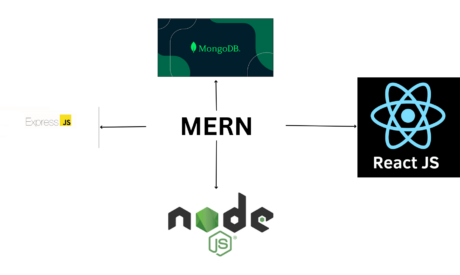


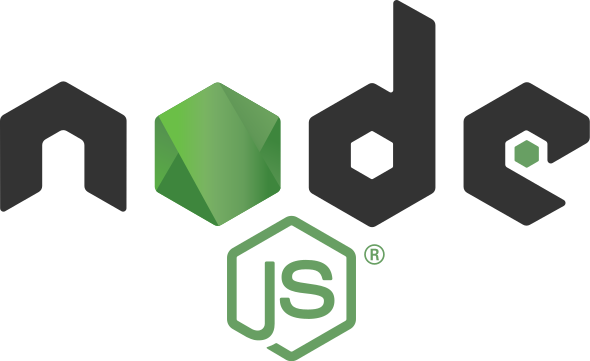

Comments